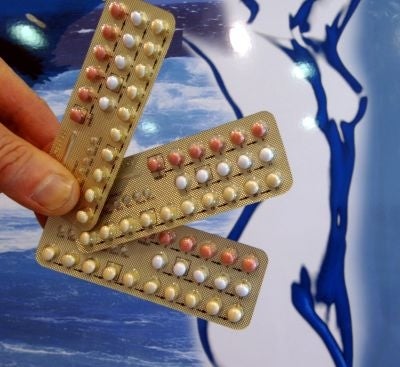Morning-after pill rules to be relaxed for young people
Both male and female condoms should also be readily accessible at school and at places such as youth groups, according to health experts

Your support helps us to tell the story
From reproductive rights to climate change to Big Tech, The Independent is on the ground when the story is developing. Whether it's investigating the financials of Elon Musk's pro-Trump PAC or producing our latest documentary, 'The A Word', which shines a light on the American women fighting for reproductive rights, we know how important it is to parse out the facts from the messaging.
At such a critical moment in US history, we need reporters on the ground. Your donation allows us to keep sending journalists to speak to both sides of the story.
The Independent is trusted by Americans across the entire political spectrum. And unlike many other quality news outlets, we choose not to lock Americans out of our reporting and analysis with paywalls. We believe quality journalism should be available to everyone, paid for by those who can afford it.
Your support makes all the difference.Rules surrounding the morning-after pill should be relaxed to allow young people to be given emergency contraception to keep at home in case they need it, under new NHS guidance.
Young women under the age of 25 should also be "encouraged to consider and choose a suitable form of contraception for their future needs", the National Institute for Health and Care Excellence (Nice) has recommended.
Under the guidance, free condoms, including female condoms, would be "readily accessible" for young men and women at places such as "schools, colleges and youth clubs".
Emergency contraception would be available in advance for the first time for those on the pill or using condoms in case either failed.
The new guidance is aimed at cutting the high numbers of unwanted teenage pregnancies across England.
Anne Weyman, chair of the independent committee that developed the guidance and former chief executive of the Family Planning Association (FPA), said most teenagers who become pregnant "do not plan to do so."
She said nearly half of all pregnancies among 15 to 18-year-olds end with an abortion.
"The good news is that the number of under-18s becoming pregnant is falling. But we really need to build on this recent progress because England still has one of the highest teen pregnancy rates in Europe."
Under the plans, suitably qualified nurses (including school nurses) and pharmacists should be allowed to dispense free emergency contraceptive pills in accordance with patient group directions (PGDs) without the need for a prescription.
Pharmacists, who can charge £25 for the morning after pill, should be able to dispense it free of charge.
It also said health professionals must be aware that they can provide under 16s with it "without parental knowledge or consent, in accordance with best practice guidance".
Health professionals who are unwilling or unable to provide the emergency contraception should then provide details of other local services where they can be seen urgently.
Young women should also be told of places they can obtain free, confidential pregnancy tests with same-day results.
Professor Mike Kelly, director of the centre for public health at Nice, said: "It is really important that sexual health services offering information and advice can be found in places where young people have access to them.
"Evidence clearly shows that the availability of contraception reduces the rate of unwanted pregnancies. Local planners and providers of services must make sure that what they offer is right for their area."
Additional reporting by Press Association
Join our commenting forum
Join thought-provoking conversations, follow other Independent readers and see their replies
Comments